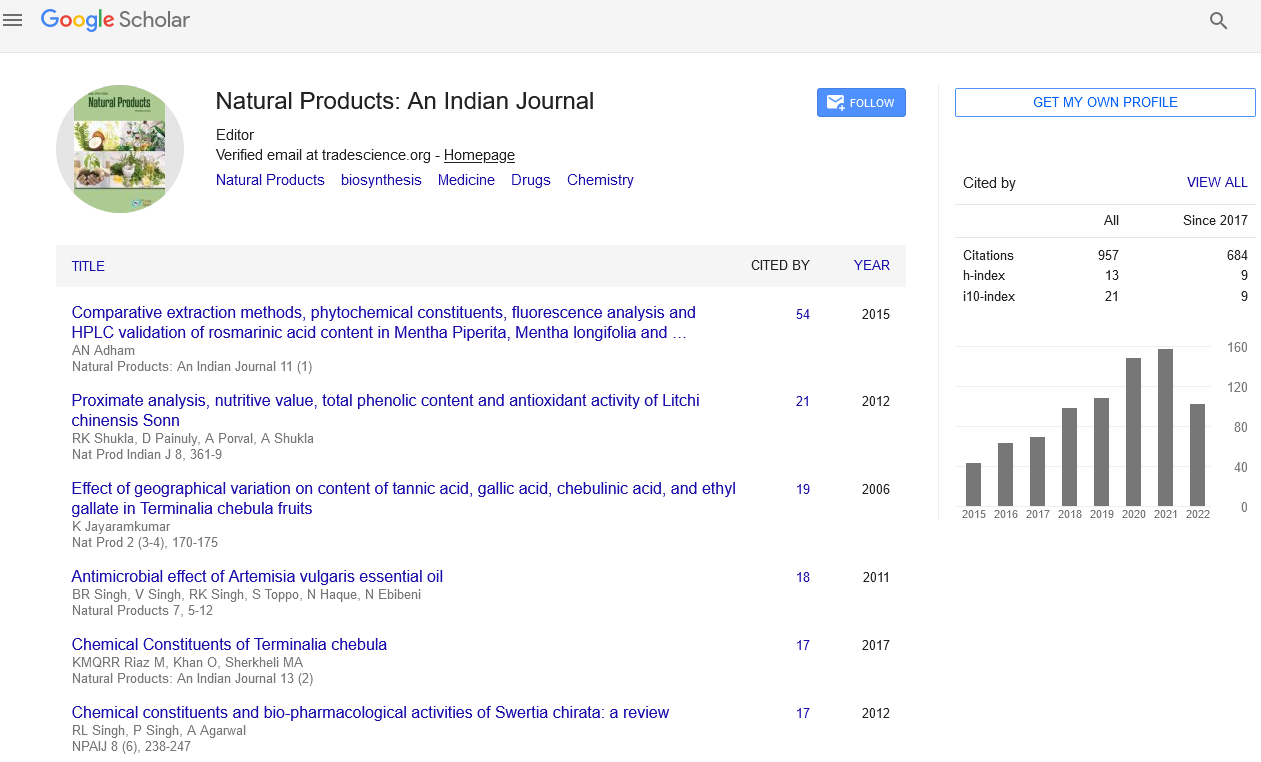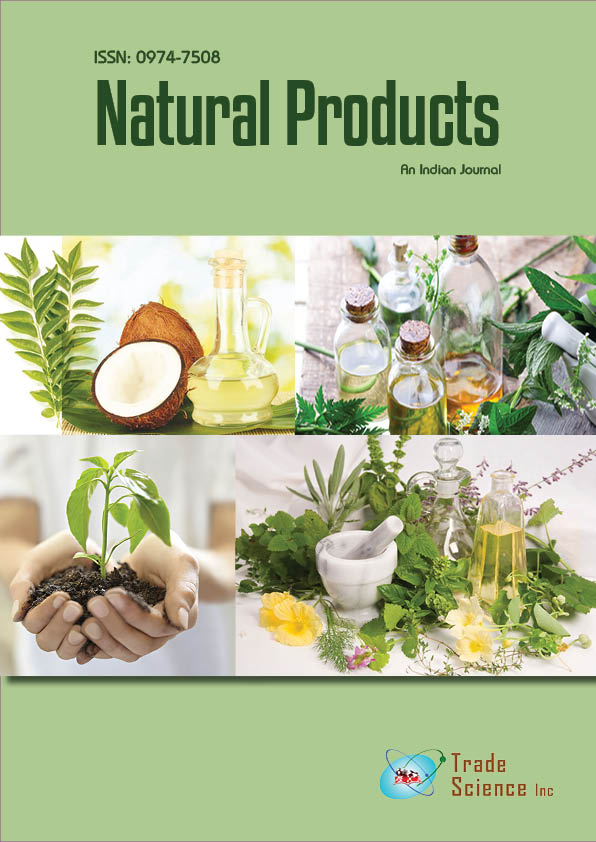Abstract
Anti-inflammatory activity of the inflorescence of Typha elephantina (cattail) in rats
Author(s): Vandana Panda, Tejas Thakur, Yuti DesaiObjective: Themethanolic extract of Typha elephantina inflorescence (TE) was studied for anti-inflammatory activity by in vitro and in vivo studies. Methods: The in vitro anti-inflammatory potential of TE was evaluated by studying the effect of TE on inhibition of i) protein denaturation, ii) proteinase activity and iii) hypotonic saline induced hemolysis of RBC for membrane stabilization activity. The in vivo anti-inflammatory activitywas evaluated in carrageenan induced paw edema and cotton pellet induced granuloma in rats.Wistar rats were orally administered TE (250mg/kg and 500mg/kg) and the standard drug diclofenac sodium(10mg/kg) 1 h prior to a subcutaneous injection of carrageenan (0.1 ml of 1% w/v carrageenan) into their right hind paws to produce edema. The paw volumes were measured at various time intervals to assess the effect of drug treatment. In the granuloma model, 4 sterile cotton pellets were implanted in the ventral region in each rat.TE(250mg/kg, 500mg/kg and 750mg/kg) and the standard drug diclofenac sodium (10 mg/kg) were administered orally for 8 days to the pellet implanted rats. The granuloma tissue formation was calculated from the dissected pellets and the activities of the marker enzymes AST, ALT and ALP were assayed from the serum. Results: TE at different concentrations significantly inhibited the heat induced protein denaturation and proteinase activity and exhibited good membrane stabilization by inhibiting the hemolysis of RBC.Asignificant reduction in pawedema and cotton pellet granuloma was observed with TE treatment when compared with the carrageenan treated and cotton pellet implanted control animals respectively. TE treatment significantly attenuated the AST, ALT & ALP activities elevated by the implanted cotton pellets. Conclusion: It may be concluded that TE possesses anti-inflammatory activity which might be due to an underlying antioxidant activity and lysosomal membrane stabilization.

